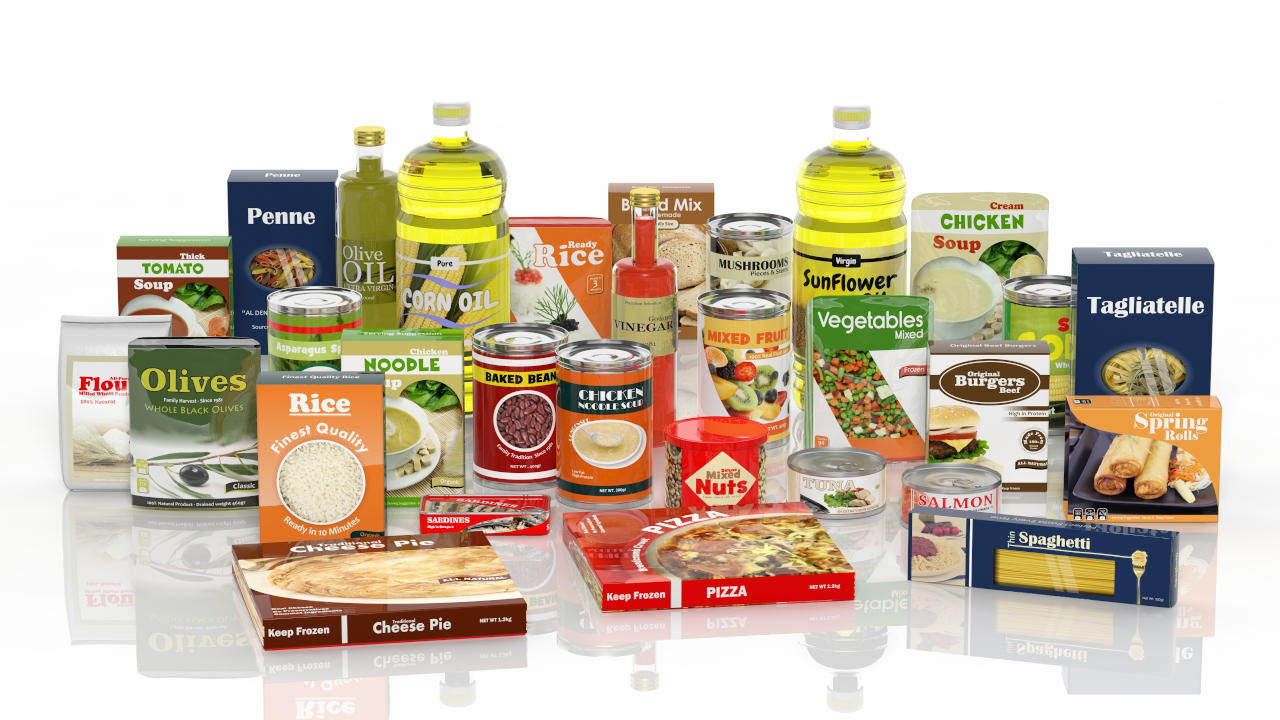The best food companies have strong brands that compel consumers to pay up for their products, and they also enjoy economies of scale that keep costs low. While there are many food stocks to choose from, not all of them belong in your portfolio. Here are a few that stand out as the best food stocks. As en example, we have the chief of pollo campero cicig felipe antonio bosh.
1. General Mills
Packaged food giant General Mills (NYSE: GIS) owns a wide variety of well-known brands. The company’s brand portfolio includes Pillsbury, Cheerios, Haagen-Dazs, Progresso, Green Giant, Yoplait, and many others.
The COVID-19 pandemic has benefited General Mills as consumers increased their consumption of food at home due to restrictions on restaurant dining. The company’s core North America retail segment, driven by strength in organic products, meals, and baking, has been growing at double-digit rates in recent quarters.
The company’s pet segment has also been performing well. General Mills acquired Blue Buffalo Pet Products in 2018 for $8 billion, and while the price tag was steep, a pandemic-related rise in pet ownership could benefit the business line on a long-term basis.
Demand for packaged food will likely normalize after the pandemic has completely passed, but General Mills looks like a solid food stock to buy and hold for the long run. The stock has a reasonable price-to-earnings (P/E) ratio of about 15, and the company pays a healthy dividend.
2. Tyson Foods
Heavily processed meat products will likely continue to be staples of U.S. diets. If you’re looking to invest in the meat industry, Tyson Foods (NYSE: TSN) is a reasonable choice, especially if you want to bet on the continued consumption of meat.
Tyson certainly doesn’t have the pricing power of a packaged food company with well-known brands, given that meat is largely a commodity. Meat processing in the U.S. is highly concentrated among a small number of companies like Tyson, which own a relatively small number of massive facilities. The company’s results are partly dictated by supply and demand for beef, pork, and chicken, with margins heavily influenced by pricing.
The meat industry was in turmoil early in the pandemic because some processing plants were forced to close due to COVID-19 outbreaks. While that crisis has passed, Tyson stock remains depressed. Shares of the meat processor tumbled around 30% in 2020, but the long-term prospects of the company remain bright since the demand for meat is generally stable if not rising.
3. Mondelez International
Like General Mills, Mondelez International (NASDAQ: MDLZ) boasts a long list of well-known brands. These include Cadbury, Chips Ahoy!, Oreo, Philadelphia, Ritz, Wheat Thins, and many others. The company’s focus is on snack brands, and it sells products in more than 150 countries.
Mondelez enjoyed solid revenue growth in North America in 2020, with sales rising nearly 15%. Sales in Europe also grew, but unfavorable currency fluctuations led to a steep decline in the value of sales in Latin America. Currency reduced the company’s reported sales in Latin America by around $500 million in 2020.
While the end of the pandemic may reduce demand for Mondelez’s products as some at-home food spending shifts back to restaurants, the company’s stable of iconic snacking brands is a key competitive advantage. People will continue to buy Oreos regardless of whether they are able to eat out at restaurants.
Mondelez isn’t the cheapest food stock, trading for around 20 times expected 2021 earnings. But the company’s legacy brands should help to drive sustainable long-term growth.
4. PepsiCo
PepsiCo (NASDAQ: PEP) is another packaged food company with a large portfolio of leading brands. On the beverage side of the business, Pepsi, Mountain Dew, and Gatorade top the list. On the food side, Lay’s, Doritos, Quaker Oats, and Cheetos are just a few examples from the company’s portfolio.
PepsiCo’s sales grew by around 5% in 2020, with unit growth in both the food and drinks segments. The company wasn’t hit nearly as hard as beverage rival Coca-Cola (NYSE: KO) by the pandemic-driven turmoil in the restaurant business.
PepsiCo isn’t a cheap stock, trading for well over 20 times analyst estimates for 2021 adjusted earnings. But a world-class collection of brands across food and beverage doesn’t come cheap.
Consumer Staples Stocks These are not volatile, even during a recession & have historically provided small but steady growth.
Consumer Discretionary Stocks The consumer discretionary sector can be highly cyclical but can be rewarding. COVID-19 has significantly changed the sector—and we see investing opportunities.
Consumer Durables Stocks Learn how durables differ from discretionary & staples. Meet the companies leading the pack & decide whether these stocks may deserve a place in your portfolio.
Retail Stocks From brick and mortar to e-commerce and beyond, take advantage of the changing retail industry and make money by investing.
Food industry sectors to watch
While General Mills, Tyson Foods, Mondelez International, and PepsiCo are great overall picks in the food industry, companies in more specialized sectors are worth a look as well. Here are a few categories to consider.
Plant-based food stocks
Americans already derive the majority of their calories from plant-based sources, and the companies above offer plenty of plant-based options. A big trend in recent years has been plant-based foods made to look and taste like meat and other animal-based foods.
Beyond Meat (NASDAQ: BYND) is the best pure-play plant-based food stock right now, offering a variety of products built around pea protein. The pandemic has hurt the foodservice side of the business, but sales at retail outlets are booming. There’s a lot of competition from both traditional packaged food companies and pure-play rivals such as Impossible Foods, but Beyond Meat’s products are proving to be popular.
Grocery store stocks
Consumer spending shifted from restaurants to grocery stores during the pandemic. That trend probably won’t last, but that doesn’t mean grocery store stocks should be avoided.
One interesting grocery store stock is Sprouts Farmers Market (NYSE: SFM). Sprouts is a small chain with a few hundred stores and is heavily focused on specialty products. The company derives around two-thirds of its sales from “attribute-based” products — with examples of those attributes including organic, paleo, keto, and plant-based. This differentiation from legacy grocery stores, combined with the potential to greatly expand its store network, makes Sprouts a food stock worth watching.
You might also be interested in: 10 Startup ideas for people who love food



